#health fraud
Text
Fuck around and find out (and get pregnant) with fake birth control
https://www.fda.gov/inspections-compliance-enforcement-and-criminal-investigations/warning-letters/wise-womens-choice-658897-07202023
Yeah, don’t buy this.
380 notes
·
View notes
Text

How can you even say something like that and not see the contradiction?
"Come watch the most censored man in the world speak freely tonight on this publicly available platform."
#i wish alex jones was more censored#I wish he was in jail for his crimes of defamation incitement public health endangerment and fraud
523 notes
·
View notes
Text
a while back my mom discovered that the owner of the company was stealing basically all of the money that he was supposed to submit for things like 'taxes' and 'health insurance' and 'court-mandated payments' for the employees, listing them on the pay stubs but then pocketing the money to help keep the company afloat
she then made sure that everybody in the company knew, submitted her resignation effective immediately, and spent about the next week calling government offices to report every crime, regulatory violation, and breach of employment contract that she could think of. and now it looks like the series of investigations that she kicked off might be the thing that finally destroys this man's company.
sometimes I'm proud of her
#and if you want a succinct summary of the American labor situation#after she told her coworkers about all of this#including things like 'turns out we all lost our health insurance a month ago because he stopped paying for it'#nobody else quit. everybody else decided that it was worth putting up with very direct wage theft and tax fraud to avoid unemployment#even the people in very in-demand positions who could trivially find work elsewhere#also i used to work for the guy too because he owned a good chunk of the businesses around my home area when i was a teenager#i met him once and it was when he walked into the store unannounced and then grabbed some stuff and tried walking right out#and got all 'do you even KNOW who I am' pissy when I informed him that this isn't how stores work and you pay for things here#being rich rots your fucking brain i swear to god
117 notes
·
View notes
Text
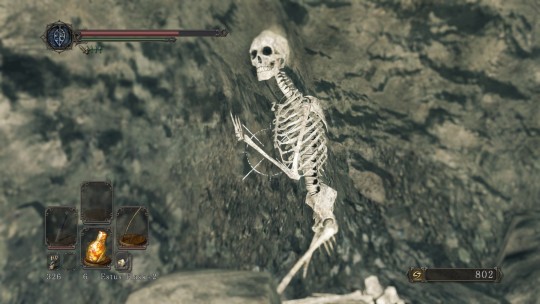
oh earthen peak, we're really in it now
#dark souls 2#dark souls#pls kindly pretend you dont see the missing health#one of the pyromancers fuckin got me bro :[#also this isnt actually from inside earthen peak its from the area just before it with the poison fog#im such a fraud
137 notes
·
View notes
Link
From the article:
After years of complaints, health care sharing ministries are now attracting more scrutiny. Sharity Ministries, once among the largest organizations in the industry, filed for bankruptcy and then dissolved in 2021 as regulators in multiple states investigated its failure to pay members’ bills. In January, the Justice Department seized the assets of a small Missouri-based ministry, Medical Cost Sharing Inc., and those of its founders, accusing them of fraud and self-enrichment. The founders have denied the government’s allegations. [...]
122 notes
·
View notes
Text
Louisiana state officials delay flood funding to New Orleans a second time over city officials' stance on abortion - CNN
They're going to drown New Orleans, killing tens of thousands of people, over the city officials' theoretical support for abortion access, even though in reality New Orleans doctors won't provide an abortion for a woman whose fetus has no skull. "Pro-life" has nothing to do with saving lives and everything to do with cruelty. It's the sort of tyranny history associates with the worst of dictators.
#politics#us politics#abortion history#abortion resources#abortion access#abortion rights#abortion#reproductive choice#reproductive health#reproductive justice#reproductive rights#reproductive freedom#republicans#republican hypocrisy#republican family values#republican#new orleans#extortion#investment fraud
343 notes
·
View notes
Video
please show up to your local meetings. local government. run for something. so many of these seats are unopposed.
https://gandernewsroom.com/
#tiktok#gander newsroom#michigan#reproductive justice#reproductive freedom#reproductive rights#reproductive choice#reproductive health#fraud#elections#local government#COVID-19#corruption#government#voter supression#Voters
85 notes
·
View notes
Text
We gotta talk about so-called "healing symptoms."
Scam artists peddling quack cures know full damn well that their product isn't going to make their customers feel any better. At best, their customers' health will improve for entirely unrelated reasons. At worst, their health will deteriorate even further due to toxic ingredients in the fake cure.
Now, worsening health would ordinarily be a clue that something isn't right. But since scammers want to keep people buying their products as long as possible, they have a little trick up their sleeves:
"You're experiencing healing symptoms! You have to get worse before you get better!"
All kinds of issues, including fatigue, aches, nausea, rashes, hair loss, weight loss, weight gain, anything, will be explained away as "healing symptoms."
Sometimes the so-called "healing symptoms" will be explained away as symptoms of toxins leaving your body. Got a mysterious rash? It's not the suspicious ingredients in the tea you're drinking causing it, it's the toxins leaving your body through your skin.
This kind of thing is also sometimes referred to as a "healing crisis."
One example of a scam artist who tried to pass off the horrible effects of her quack product as "healing symptoms" was Jillian Epperly, who basically claimed that her extremely salty fermented cabbage drink could cure pretty much anything. The reality was that "Jilly juice," as she called it, contained so much salt that people were basically poisoning themselves.
So yeah, if anybody tries to tell you that something like "healing symptoms" or a "healing crisis" is just part of the process, that's a red flag.
105 notes
·
View notes
Text
Doctor: "You need this specific orthopedic because if we don't say we used these insurance won't cover later treatment."
Insurance: "We won't pay for those orthopedics until you hit your deductible which is $1000."
Doctors office: *charges insurance $1,500 for the orthopedic*
Same EXACT brace on Amazon:
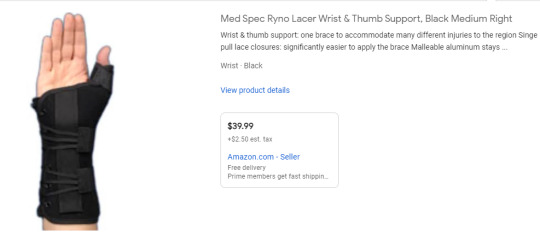
My bill:

Fucking bullshit :)
7 notes
·
View notes
Text
If you haven't had measles, a single measles vaccine, or MMR (or you've had them but something happened to your immune system since), talk to your GP.
I got my MMR a few years back when it looked like mumps was making a comeback and I promise it hurts less than an ear piercing, doing one single push-up, or the twinges of middle-age.
It says London but measles remains airborne for hours and trains and planes exist. It is vaccine-preventable and confined to humans. It should be eradicated by now, not on the verge of a comeback.
#MMR#Measles#Andrew Wakefield is a dangerous fraud#Andrew Wakefield needs a smack in the gob#Public health
25 notes
·
View notes
Text
Whistleblower Exposes Health Insurers' Most Evil Scheme
youtube
#health insurance#prior authorization#medicine#healthcare#medical insurance#fraud#medical fraud#insurance fraud#medical malpractice#american medical association#congress
11 notes
·
View notes
Text
Late night musing before I pass out because I have feelings, but I hate what cring culture has done to music. Like, if I said I liked Twenty One Pilots to most people they would straight up bully me and say I'm a "normie". Every time I bring up liking TØP I feel the need to defend myself and my interests. I literally sat here in my head trying to justify my appreciation for the band and their music by being like "oh well I don't listen to their more popular mainstream stuff I really just listen to their deep cuts" like! Why am I having to convince MYSELF that it's ok to listen to music I like?? Especially with songs that were an integral part of my coping process man! I don't really know where I'm going with this, but fuck you cringe culture and music purists.
#idk man i just. further ranting in the tags ahead but like#top has been a major outlet for me for forever and every time i mention it i feel like the biggest fake alt in the world#it makes me feel so fucking bad cuz i LISTEN to shit thats heavy metal and indie and rock and goth and all kinds of punk shit but as soon as#i mention the name top i feel like a fraud and a phony and i feel like everyone is laughing at me! like damn have any of you actually#Maybe listened to their fucking music??? like not only is it good music. but it also touches on a lot of mental health topics too.#SEE LIKE IM EVEN DEFENDING MYSELF IN THE TAGS OF MY OWN DAMN POST! FUCK!#whatever man#clown’s honks
10 notes
·
View notes
Text
I know that this is controversial but I'm honestly starting to think that it should be illegal for someone to claim that they have a medical or mental health condition that they actually don't to gain ad revenue or donations online.
I don't care if it's people who are faking cancer or people who are faking tourette syndrome, there are way too many people who are trying to promote businesses, get ad money from YouTube or TikTok, or sell books by lying that they have a condition that they don't have. A lot of people are starting to get arrested for pretending to have cancer and getting money from it but I have noticed so many people who are 100% outed as faking mental health or physical conditions online who still get money from it, and frankly I don't think it should get to the point where they make millions of dollars and are able to be charged with fraud before they should be stopped.
Think about how many of these people claim to have cure themselves by using an alternative medicine that they're selling that doesn't actually help people who really have the condition. Think about how many of these people are taking donation money away from people who are actually struggling with the condition that they don't really have. Think about how many people have died waiting for donations or help but they never got it, and instead the people who could have donated to them spent that donation money on someone who was never in any financial trouble and was never sick to begin with.
Obviously fraud in the capacity of the subject is usually prosecuted once it hits like a million dollars in revenue, but that's a felony and it's often a federal felony and takes a lot of time and effort to prosecute. I really believe that more states need to have a law stating that people who knowingly pretend to have a medical condition or mental health condition that they don't have on social media should be forced to pay back all donations that they get, or get a misdemeanor for theft by deception. (Obviously this wouldn't affect people who are still in the diagnosis process or who genuinely believe that they have the condition that they're talking about and are trying to get help for it but later get a different diagnosis, I am specifically talking about the people who say that they have an on paper diagnosis but they have no medical records supporting the diagnosis.)
I'm 100% transparent with actual screenshots of my medical records on my platforms so that people can actually see what I am truly diagnosed with and what I'm actually dealing with before they make the decision to follow me or to financially support me or donate to me in any way. Obviously I'm not asking for every single disabled person who posts online to post all of their screenshots from their healthcare portal like I do, but if you are making money because you say that you're disabled and that is your entire platform, you should have some type of evidence to back it up.
Way too many people think that charity scams are their way to fame and money and way too many people are falling for it.
(also this definitely isn't me talking about anyone specific or trying to fake claim anyone, but the more I see YouTube videos about people who made millions or thousands of dollars on YouTube or tiktok or GoFundMe only to later be arrested for fraud makes me think that these things need to be actually confirmed and shut down before it gets to that point.)
#disability#physical disability#mental health#neurodiversity#neurodivergent#discourse#fake discourse#fake disorder cringe#fraud#scam#cancer#crowdfunding#true crime
4 notes
·
View notes
Text
High Risk/GERIATRIC Meghan poses near High Risk MISCARRIAGE causing foods. Imbicile.

But here she is cosplaying Kim K at a table where she has prepared a lox bagel (cheese and smoked salmon).
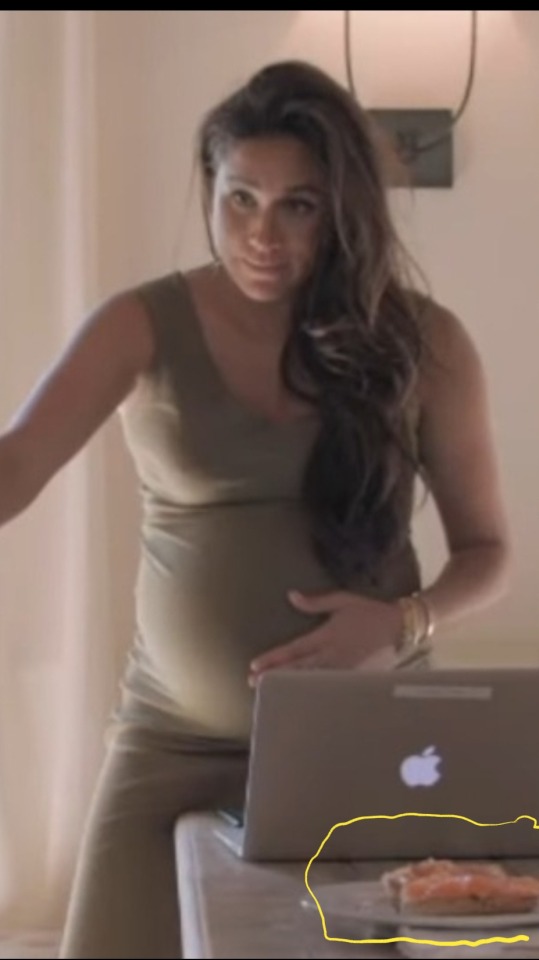
Pregnant women are 20x more likely than healthy adults to get listeriosis borne illness which is fatal for unborn baby.
This woman, experiencing or faking a geriatric pregnancy, should have avoided staging scenes with foods known to increase the chances of miscarriage.
Sadly miscarriage happens to most women. But for these 2 numpties to publicly blame their critics for a miscarriage is so low and evil, I just don't have a gracious word to offer them.
Thank God they left the BRF because they NEVER should have been given a platform.
There just isn't enough time to point out all the ways Meghan & Harry teach people to follow a path of death & destruction.
Sadly, Meghan will read this post and clap back on a maternal health or cooking show. She'll make a passing comment about how she makes Harry's favorite lox lunch blah blah blah and absolve herself and blame her critics.

youtube
youtube

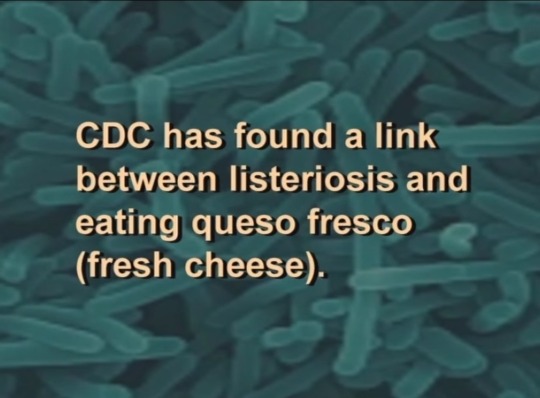
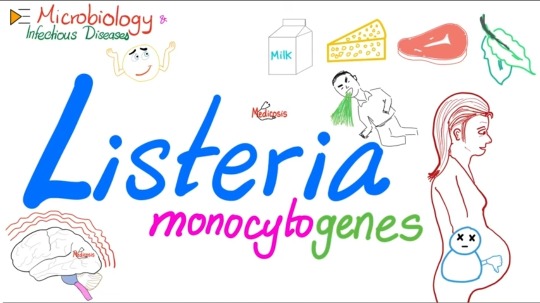

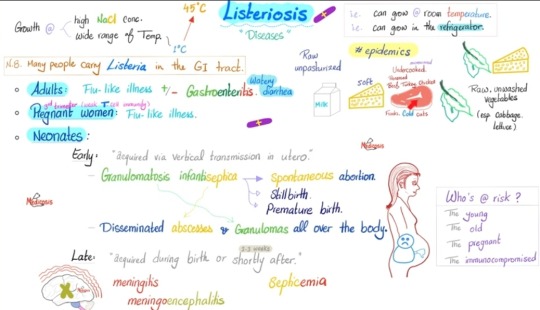
#miscarriage#fetal health#listeriosis#listeria#revenge#tom bower#megxit#markled#frauds#moonbump#Ysidro Ranch#worldwide privacy tour#megflix
22 notes
·
View notes
Link
By: Gayathiri Rajkumar and J.D. Haltigan
Published: Jan 16, 2022
Social media has become a primary target of criticism for those attempting to explain why teens and adolescents in the West, especially females, are exhibiting all-time highs in a variety of mental mood disorders such as anxiety and depression, as well as their behavioral correlates of self-harm and suicide. Early social media exposure has made younger generations more comfortable and willing to share intimate details of their lives online, and social media’s emphasis on virality has facilitated a more rapid spread of ideas and information than previously. As real-world social networks have increasingly moved into the digital realm, the social dynamics of reward and punishment have also changed.
Social media’s influence on mental health awareness and presentation is complex: while some social media algorithms act to facilitate the spread of good ideas and accurate information, others can fuel the spread of harmful misinformation and seed dangerous social contagions. That rates of teen and adolescent depression, anxiety, and suicidal ideation have risen precipitously since the advent of social media and smartphones is likely no coincidence.
In recent years another concerning trend has emerged on social media in which adolescents present with various psychiatric impairments that are inconsistent with classical psychiatric disorder classification (i.e., using the Diagnostic and Statistical Manual for Mental Disorders [DSM]). While these individuals claim to have illness symptoms or suffer from a mental disorder, many fail to seek help. Instead, they appear to incorporate their perceived illness into their self-identity and glamorize it within their communities. This glamorization of illness is detrimental to those with clinically diagnosed disorders, as it may cause them to avoid seeking help. Further, symptoms may become exaggerated as individuals become socially incentivized to signal their disorder identity to others. The emergence of the COVID-19 pandemic and consequent increase in social media engagement has created a fertile environment for this phenomenon to become more problematic and underscores the urgent need to better understand the significance of social media use on adolescent mental health.
Last month, we and another colleague provided a detailed historical overview of this phenomenon in the journal Comprehensive Psychiatry, and further outlined a conceptual model to help organize thinking and research examining it. We believe there is an urgent need for focused empirical research investigation into this concerning phenomenon that is related to the broader research and discourse examining social media influences on mental health.
TikTok, a popular social media app, has received increasing criticism for being a potential “spread vector” for various mental health symptoms and disorders. The app has been known for short dancing, singing, and comedy videos but has recently seen a surge in content pertaining to mental health. Videos regarding mental illness, disabilities, and gender identity have gained widespread traction on the app, with hashtags like #DID (i.e., dissociative identity disorder) and #BPD (i.e., borderline personality disorder), for example, acquiring millions of views. Among many videos using these hashtags are short clips of individuals displaying and showcasing symptoms, such as the tic-like movements seen in Tourette’s syndrome, as well as clips discussing symptomatology of various common clinical (e.g., depression) and personality (e.g., borderline personality disorder) mental disorders.
Unfortunately, many content creators posting these videos are not medical professionals, but are instead self-identified patients or mental health advocates who often speak on mental disorders with little to no expertise on the matter. Many of these creators make overly generalized statements regarding symptoms and attempt to relate them to clinical diagnoses, which can easily mislead viewers into believing they have a disorder they may not.
TikTok videos on mental disorders often include content creators showcasing tic-like movements similar to those with Tourette’s syndrome (TS). Tourette’s-related content has seemingly resulted in a consequent increase in self-diagnoses as well as functional tic-like behaviors (FTLBs), which differ from tics in TS both neurotypically and phenotypically. FTLBs are displayed as an explosive presentation of symptoms over hours or days, consisting of complex motor and verbal tic-like behaviors, while symptoms develop over years with TS. Complex vocalizations are a notable feature of FTLBs, while motor tics usually precede vocal tics in TS. Individuals presenting with FTLBs at clinics are often adolescent females, which coincidingly makes up the core user base of TikTok, and many presenting to psychiatric clinics stated that they have seen videos on TS on social media platforms.
Along with TS, self-diagnosed dissociative identity disorder (DID) has become increasingly common, potentially due to popular videos of content creators “switching alters” or identities in real-time on camera. Since a DID diagnosis is usually synonymous with a history of abuse and trauma, some are concerned that many teens are simply acting out the latest “trends” on TikTok and may not be facing any real mental health challenges.
A common feature of DID and self-diagnosed mental illness content on social media is that it often tends to be romanticized and glamorized, transforming mental disorders into social identifiers that individuals quickly adopt without understanding their severity. Those engaging with this content may be unaware of what is accurate and what is created for views and popularity, making it easy to internalize content into their self-identity. They may incorporate mental illness symptom presentations they are exposed to in online communities to socially assimilate and build social capital within these communities.
The origins of this mental-illness-as-identity phenomenon can be traced to other social media platforms that were popular before the emergence of TikTok, such as Tumblr and Instagram. Tumblr was extremely popular during the first decade of the 2000s and contained a large amount of content regarding anxiety, depression, eating disorders, and gender identity-related conditions. Many people used Tumblr to express their feelings and find people they could relate to, but that evolved into an online environment in which mental disorders such as anxiety and depression were portrayed as “cool” and “trendy.” These disorders in time underwent a process of “pseudo-normalization” and were also promoted in communities on Tumblr through specific hashtags, with no emphasis on the importance of recovery.
As these disorders became an identity signifier for many adolescents who tied them to a particular community, seeking help and treatment appeared to be less prioritized. Instagram online communities organized by hashtags also often portray an oversimplified version of mental illness. Posts regarding mental health are often not intended to be taken seriously, but yet may be perceived as accurate educational information, and thus potentially leading to the spread of dangerous misinformation.
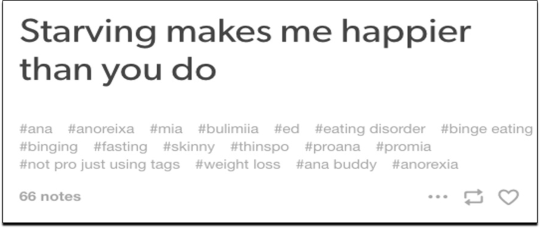
There is a complex space that exists in the professional and media venues between de-stigmatizing mental illness and normalizing or even glamorizing it, as well as between what is authentic and what is performative. While posting about personal struggles with mental illness online may be emotionally genuine to some, it is more accurately understood as behavioral display to fit in and appear unique to others online. The phenomenon of defining one’s uniqueness through claims of mental illness has been characterized by many as TikTok’s “sick-role subculture,” as many youths attempt to identify with popular creators on TikTok by taking on a sick role or personal identity.
Much remains to be understood about the social dynamics of such “sick-role subcultures.” This need for increased understanding into these subcultures exists alongside a broader urgent need to understand social media influence on youth mental health. Ultimately, clinicians and mental health professionals need to be aware of how TikTok and other audiovisual immersive online subcultures may influence symptom and disorder presentation in youth and adolescents. Asking adolescents questions about their social media usage, such as how much time they spend on it, what type of content they consume, and how social media makes them feel should be prioritized in assessments of their symptoms. In addition, parents should be strongly encouraged to communicate with teens on these issues and be aware of the content their children are consuming on social media.
==
The interesting thing is that the people who do this sort of thing actually do have mental health issues. Just not the ones they perform for an audience. I’ve yet to encounter a TikTok influencer who is known for Narcissistic Personality Disorder, Histrionic Personality Disorder or Antisocial Personality Disorder, for example.
#Reality's Last Stand#munchausen by internet#Gayathiri Rajkumar#J.D. Haltigan#mental illness#performative mental illness#fetishization#mental health#social currency#social contagion#social media#mental disorder#Tourette’s syndrome#dissociative identity disorder#multiple personality disorder#alters#fraud#self diagnosis#self dx#religion is a mental illness
23 notes
·
View notes
Text
What i wish studying felt like...

What it actually feels like (to me):

*Chopin's coda from ballade no 1 plays in the background (in my head) and i scream internally bc that feeling of going crazy from stress/overwhelm is what i feel 😭😖*
2 and a half weeks...i can do this....i can do this...and then i'm gonna take a break from ALL studying, including self-studying, until September bc i think if i continue to push myself further i'm gonna burn out and not have enough time to recover 😵💫
#words thrown at the wall#🧘♀️ the situation is temporary#might delete later#unless you find it relatable too... or at the very least entertaining 😅#this is why i can't post original aesthetic pics - i'd feel like such a fraud XD#study aesthetic#chaotic academia#chaotic academia aesthetic#there is no aesthetic#studyblr#chemblr#stemblr#codeblr#progblr#burnout#mental health#stu(dying)
7 notes
·
View notes